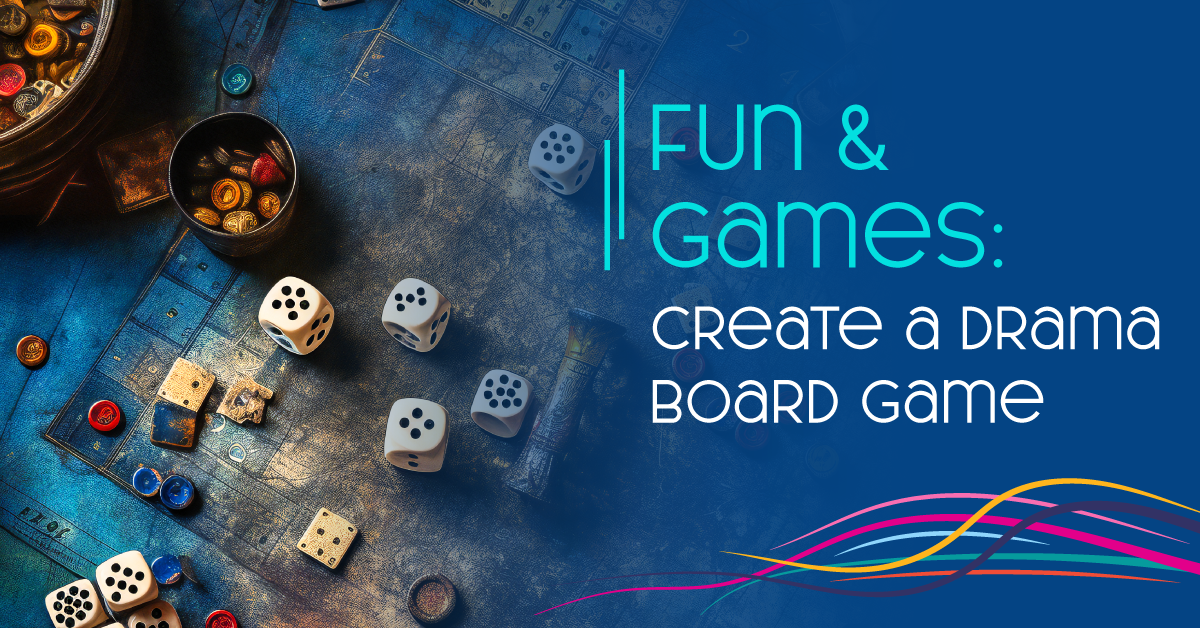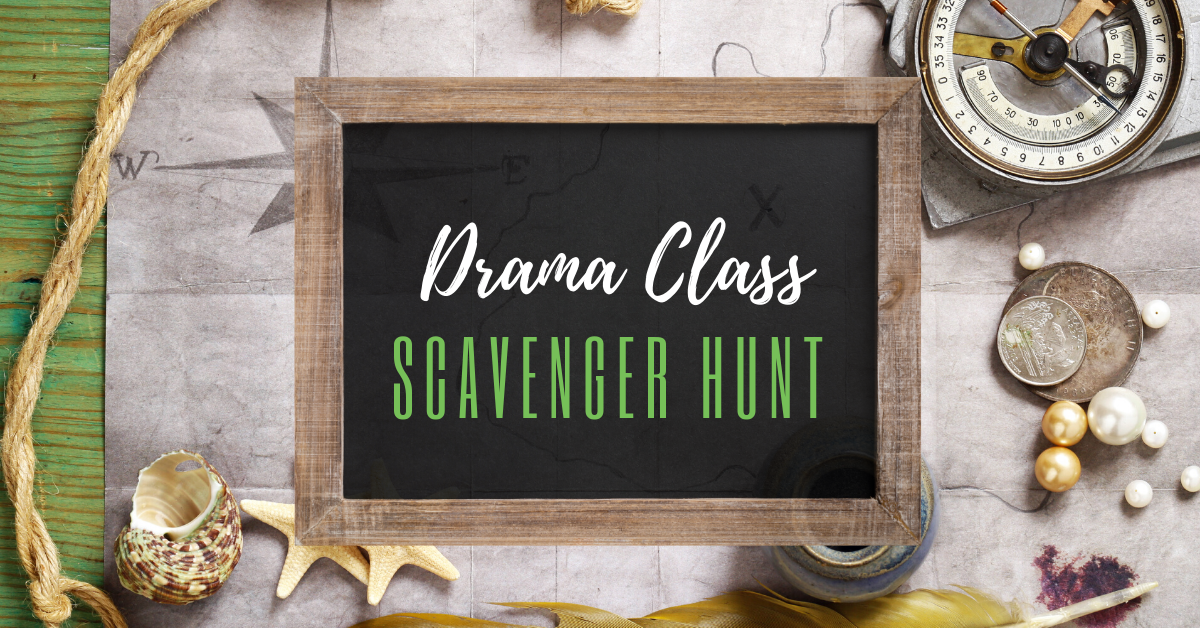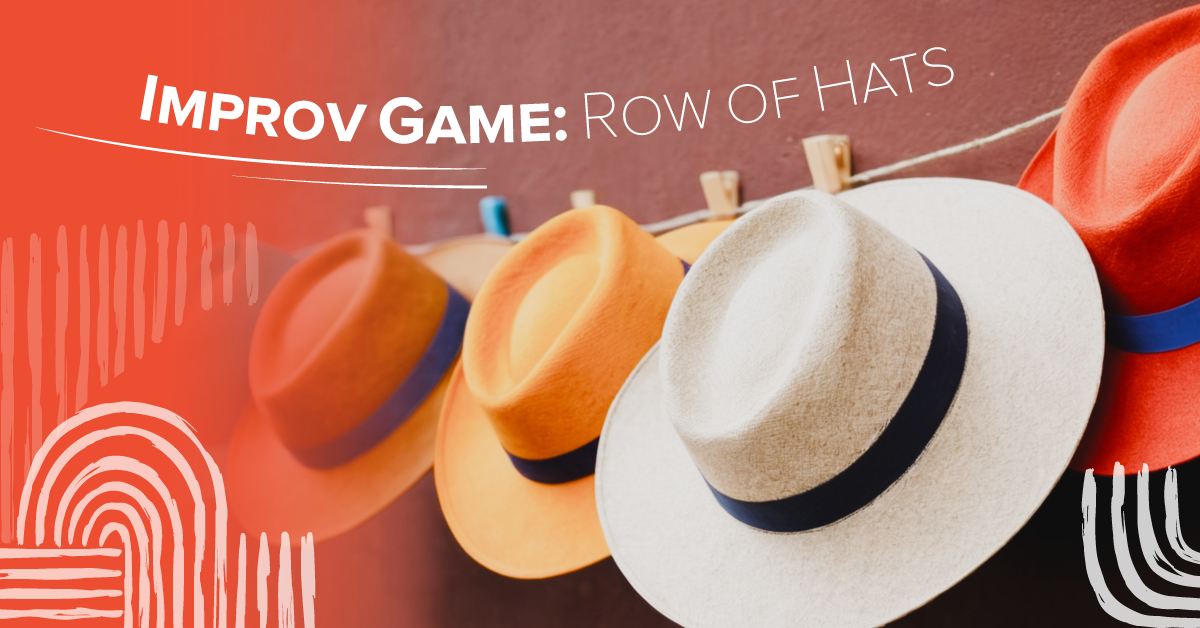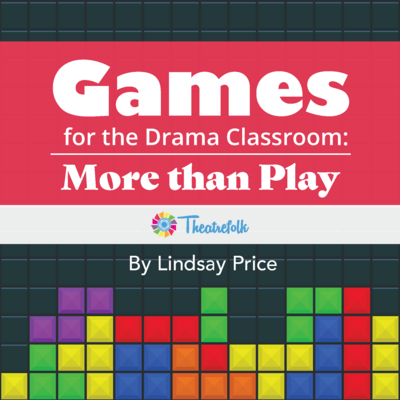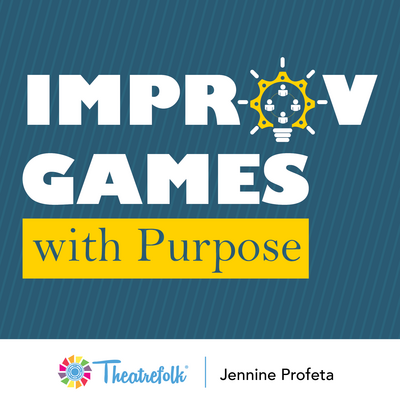Fun & Games: Create a Drama Board Game
In this activity, students will demonstrate their knowledge of a selected play or musical and combine it with their creative and artistic skills to make their own theatrical board game. They’ll design and present a racing-style board game, like The Game of Life or Candyland, complete with a customized game board and tokens and an entertaining storyline based on important moments from the show.
This activity is great for partners or small groups. An evaluation rubric is included at the bottom of this article.
1. Decide on a game journey.
Have students select a show you’re currently studying or performing, or a different show of their choosing. Students will create a timeline of the major events in the play or musical, which they will use throughout the game to tell the story of the show. Map out a list of the important moments throughout the play that they need to include, and put them in chronological order. Determine how these moments will fit onto the game board or into the game. For example, will the moments be written on game spaces for the players to read, or do the players need to solve a show-related riddle or puzzle to win? The goal for the “game journey” is for the student game designers to demonstrate that they know the important plot points from the show’s storyline, while making the game fun at the same time.
2. Determine the gameplay and rules.
Students will need to decide how the tokens will move around the board (e.g., using dice, playing cards, or another counting method) and any special spaces, such as “lose a turn,” “move back ___ spaces,” or “advance token to ____ space.” Special spaces can be game-related or action-related. For example, if the group chose The Phantom of the Opera for their game board, some special space examples might be, “You receive a threatening note from The Phantom — lose a turn” or “You’ve joined the corps de ballet — demonstrate your best moves and gain an extra three spaces” or “Madame Giry demands that you answer a trivia question to earn an extra dice throw.”
Some board games include drawing extra cards or gaining bonus tokens for various reasons. Students are encouraged to add a unique slant to their games, whether that be answering trivia questions, completing physical tasks, collecting bonus tokens from landing on certain spaces, or something else related to the play or musical basis for the game. A game based on Alice in Wonderland might have game players collecting vials of “Drink Me” potion throughout the game, while a game based on Peter and the Starcatcher might require game players to retrieve bags of starstuff.
Students will type up the rules and include them with their board game, ensuring they are clear and concise. (Nobody wants to spend ages reading through the rules before getting into the gameplay!)
3. Design tokens and a game board.
Using their design skills, students will create a colourful and elaborate game board and unique playing tokens for their game. If students are studying The Addams Family, they might choose to make tokens that look like Morticia, Gomez, Wednesday, and Lucas Beineke, with a board designed entirely in black and gray. A Wizard of Oz game might have the game board divided into different zones such as Munchkinland, the spooky forest, the poppy field, and the Emerald City — with the Yellow Brick Road as the game track of course!
For this assignment, students must also include a three-dimensional feature to their game board, similar to a scale model set design. They might wish to design a game backboard that looks like the French Taunter’s castle from Spamalot, have high rise buildings in each corner for a How to Succeed in Business… game, or build a miniature bed stacked with many mattresses for tokens to climb for a Once Upon a Mattress game. The possibilities are endless!
4. Play the game!
Have each group pair up with another group, and test play each group’s board games. Then, give each team notes. What worked well? What needed improvement? How well did the team integrate the source play or musical into the design of the game?
As time permits, have students try out a few different games. If you wish, have them vote on their top three games!
Related Articles
Games for the Drama Classroom: More Than Play
by Lindsay Price
A collection of games and activities that go well beyond the notion of "play."
Improv Games with Purpose
by Jennine Profeta
Improv games including feedback suggestions and questions, game variations, teaching tips, side coaching tips, entry prompts, exit slip questions, and more!
